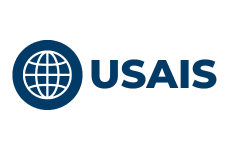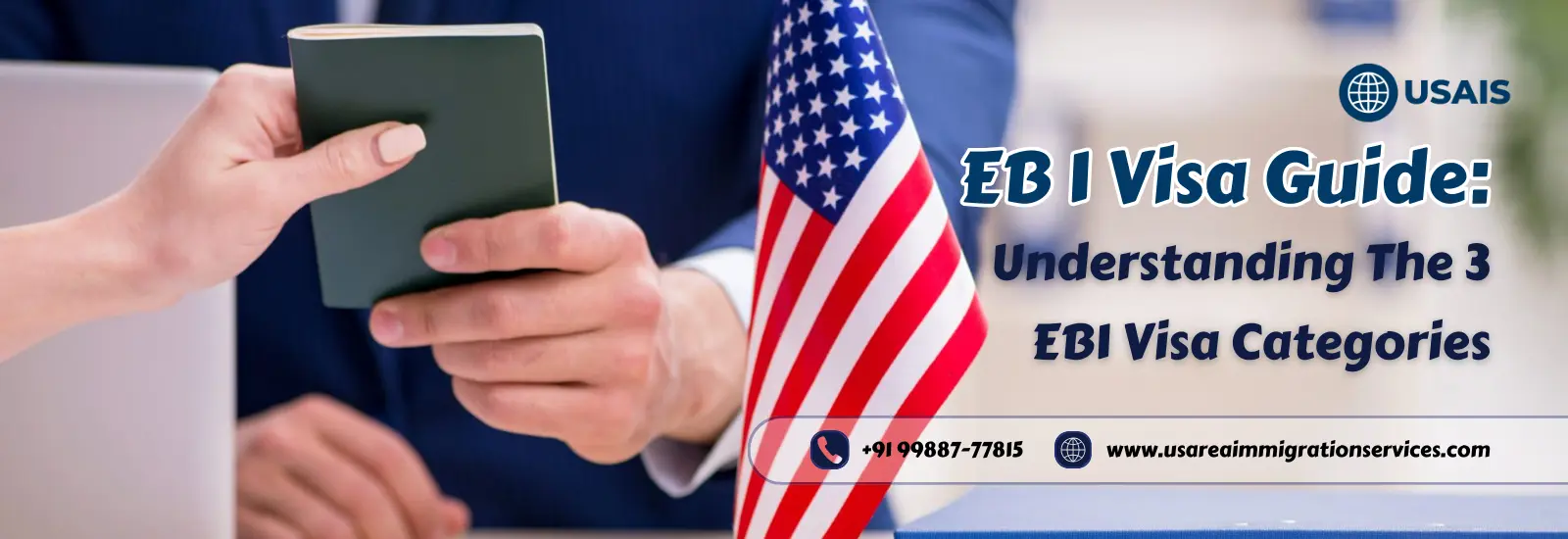Three separate subcategories make up the EB1 visa classification for immigrants: 1. EB1A for individuals with exceptional abilities; 2. EB1B for exceptional professors and researchers; and 3. EB1C for international managers and executives.
We’ll go over each of the three EB1 visa types in this guide.
Overview of the EB1 Visa
An immigrant visa classification is known as the “Employment-Based First Preference” (EB1) visa. A successful petitioner for an EB1 visa is eligible for an American green card, or lawful permanent residency. A successful petitioner may also be able to obtain green cards for their spouse and kids.
The fact that the EB1 visa falls into three distinct categories, each with distinct approval requirements, makes it an intriguing option.
These three groups consist of:
- EB1A visas for those with exceptional talent
- EB1B for exceptional educators and scientists
- EB1C for executives and managers from overseas
Let’s now talk about each of these groups.
EB1A Visa
EB1A is the initial category under the EB1 visa. Those with exceptional talent in the arts, sciences, business, sports, or education are eligible for the EB1A visa. You have to demonstrate that you are one of the elite in your industry to be eligible for an EB1A visa.
Self-petition is one of the primary advantages of the EB1A visa. This implies that you can obtain an EB1A visa without the assistance of a business sponsor. Alternatively, you may submit a petition on your own.
Requirements
For an EB1A visa, the following two conditions must be met:
- Once you are in the United States, you will continue to work in your area of remarkable talent.
- The benefits of your presence in the US will be enormous for the nation.
Now, let’s discuss these two requirements in detail
Once you are in the United States, you will continue to work in your area of remarkable talent.
You also need to demonstrate that, while in the US, you will keep up your work in your area of remarkable talent to be eligible for an EB1A visa. You can provide proof of this by presenting documents like employment offers, contracts for work in your industry, or other comparable proof.
The benefits of your presence in the US will be enormous for the nation.
To be eligible for an EB1A visa, you need to demonstrate that your presence in the US will significantly benefit the nation. you will work in your area of exceptional talent will suffice to meet this condition.
EB1B Visa
EB1B visas fall into the second category of EB1 visas. Recipients of the EB1B visa are distinguished scholars and researchers. You have to demonstrate that you are regarded as exceptional in your academic field to be eligible for an EB1B visa. This requirement is marginally less than the “extraordinary ability” threshold needed to be eligible for an EB1A.
Requirements
An EB1B visa can be obtained by fulfilling three basic requirements:
- You are acknowledged globally for your exceptional performance in the academic domain.
- You’ve been a teacher or researcher in your field for at least three years.
- You’ve received an offer to work as a researcher or a teacher in the United States.
Let’s go through all these 3 requirements in detail
You are acknowledged globally for your exceptional performance in the academic domain.
You will need to provide proof of your great international reputation in your industry if you need to be granted an EB1B visa. You need to fit into at least two of the six categories that are mentioned below:
Criteria for EB1B:
- In your academic field, you have given exceptional contributions by winning significant honors or prizes.
- You belong to associations in your academic field that only accept members who have achieved extraordinary things.
- There is written content about your academic work that has been published by others in professional journals.
- You have taken part in evaluating the work of others in your academic field or a related academic field as an individual or in a panel.
- You have made unique contributions to your scholarly study or scientific field.
- You have written academic books and papers for academic publications in your academic discipline.
You’ve been a researcher or teacher for at least three years in your field
To be eligible for an EB1B visa, you need to demonstrate that you are doing research in your field or have 3 years of experience. You are required to complete 3 years of experience before submitting your EB1B immigration application.
You’ve received an offer to work as a teacher or a researcher in the United States.
You need to demonstrate that you have an offer of employment in the United States as a teacher or a researcher to be eligible for an EB1B visa.
Three kinds of job offers meet this criterion 1. A job offer to teach at a higher education institution or the university. 2. A job offer to work as a researcher at a higher education institution or the university. or 3. A job offer to work as a researcher for a private firm.
EB1C Visa
EB1C is the third category of the EB1 visa. Multinational managers and executives are the only ones eligible for the EB1C visa. It’s interesting to note that the EB1C and EB1A visa categories differ significantly from one another.
A foreign corporation may transfer management or executive to a linked US company with the use of the EB1C visa. The absence of a labor certification requirement from the Department of Labor for the US company is one of the main advantages of the EB1C visa. Instead, the US business might make the foreign employee a direct job offer.
In summary
Three distinct subcategories make up the EB1 visa classification for immigrants: 1. EB1A for individuals with exceptional abilities; 2. EB1B for exceptional professors and researchers; and 3. EB1C for international managers and executives.


Great article! I really appreciate the clear and detailed insights you’ve provided on this topic. It’s always refreshing to read content that breaks things down so well, making it easy for readers to grasp even complex ideas. I also found the practical tips you’ve shared to be very helpful. Looking forward to more informative posts like this! Keep up the good work!